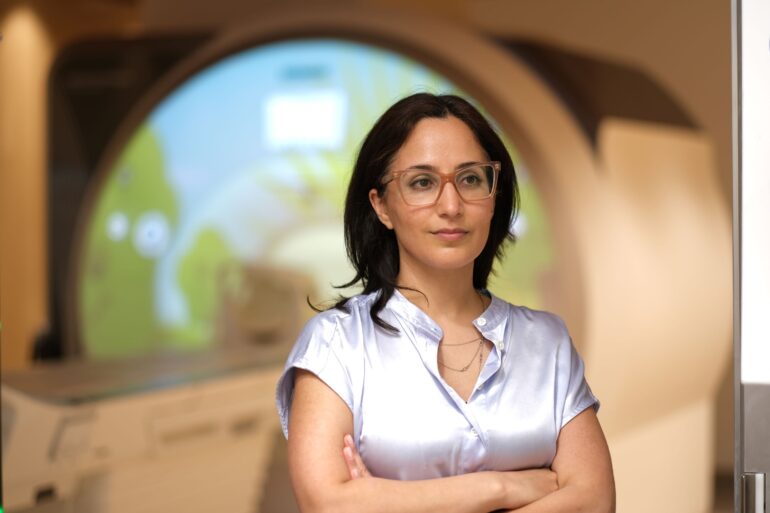Dr. Azadeh Kushki (BME) has been awarded funding from the Canadian Institutes of Health Research (CIHR) for her work in improving medication selection for autistic children. Along with Dr. Danielle Baribeau, Dr. Melanie Penner, and Marlee Vandewouw at the Holland Bloorview Kids Rehabilitation Hospital, this funding provides operational support to perform research.
Autism affects millions of children worldwide, and while medications can greatly alleviate symptoms, finding the right one for each child is akin to searching for a needle in a haystack.
This difficulty arises due to the absence of clear biological or behavioral markers that could guide clinicians in making the right choice. Consequently, doctors often resort to trial and error methods, exposing children to multiple medications and their potential harmful side effects.
To tackle this challenge, Dr. Kushki and her collaborators propose an innovative approach leveraging artificial intelligence (AI). By analyzing extensive data from the Province of Ontario Neurodevelopmental Disorders (POND) Network, which includes detailed information on over 1500 autistic children, they aim to develop AI models capable of predicting the most suitable medications for individual cases.
To validate the accuracy of these AI models, researchers will cross-reference their predictions with health records from the psychopharmacology program at Holland Bloorview.
However, researchers are cognizant of the potential biases inherent in AI algorithms, which may disproportionately affect certain demographic groups, such as girls, children from marginalized backgrounds, and those with intellectual disabilities.
In addressing these biases, researchers will meticulously analyze the dataset and AI outputs to develop technical solutions ensuring fairness and equity in medication recommendations. Ultimately, the overarching goal of this project is to expedite the process of identifying the most suitable medication for autistic children, thereby reducing the exposures to ineffective drugs and enhancing overall treatment outcomes.
Read more about Dr. Kushki’s research here.


